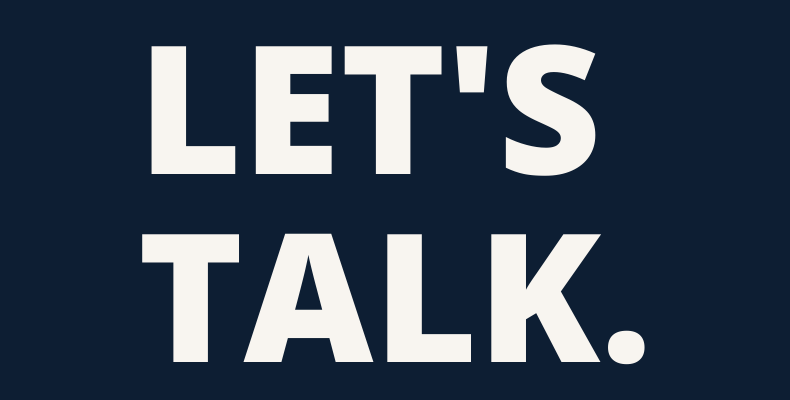Today is #BellLetsTalkDay. So let’s talk about it—mental health and the stigma surrounding it, particularly in the workplace.
In the fast-paced, forward-thinking nature of today’s working society, it’s easy to forget to take a step back and check up on how YOU are doing. We spend more hours of our lives working than anything else, and it’s because we feel we don’t have a choice—we need the pay cheque, we need to provide a better life for our loved ones—but no job is worth sacrificing your mental health for. For some, dislike for a job begins day one, when they first step foot in the office. For others, they may lose their passion for the job over time. Others may feel bogged down by enormous workloads, stress, high-pressure environments, or over-bearing supervisors and coworkers. And most of the time, it’s rarely spoken about.
Remember that you can talk about mental health any day of the year, not just today.
Although the importance of health and safety is widely recognized in most workplaces, mental health is another story. Mental health in the workplace continues to remain taboo. We hide in the bathroom when we’re upset. We hesitate to ask for a day off for something we need but feel is “unimportant”—like self-care—until a major life event happens like a new baby or ill parent. Fear of discrimination and feelings of shame are among the top reasons people give for not telling their colleagues about their mental health problems.
I can admit that I, too, have fallen victim to this mentality of hiding my emotions or mental health needs at work. In a previous workplace, I worked in a high pressure, anxiety-inducing environment. It was caused largely by a supervisor who had zero trust in me, constantly compared me to others, was never happy with my work, and put me down. My confidence was at an all-time low, and it got to the point where I was scared of coming to work every day and facing them. Every morning, my heart would pound waiting for them to come into the office. Every night I brought work home, because I couldn’t think straight at the workplace out of fear. One day, I hid in my office with the door closed and cried alone.
The way I got through this experience was to talk about my feelings. I reached out to a coworker who I trusted and felt comfortable with, and I spent an hour just talking with her about how I was feeling. It was one of the most difficult things I’ve ever had to do, having to be so vulnerable in front of someone, but boy am I glad I did it. She actively listened, she was empathetic and sincere, and she worked to understand what I needed. My mental health in the workplace gradually began to improve, because I now knew that I had someone at work who supported me and who I could discuss feelings with.
Here are some other tips on how to improve mental health (and the stigma surrounding it) in the workplace:
- Acknowledge that the stigma exists and be empathetic.
- Know the signs of a problem. If you notice changes in your or a coworker’s behavior, acknowledge that there is a problem that needs attending to, and let them know that they can come to you to talk.
- Make a to-do list. This helps you prioritize what needs to be done, reduce the overwhelming feeling from a mountain of work, and feel better every time an item is checked off.
- Take frequent breaks. Even a short walk during lunch hour or stepping outside for fresh air.
- Avoid workplace gossip. Gossip can cause more stress because it lowers morale and strains relationships with colleagues.
- Avoid taking on too much. It’s okay to say no. Before you commit to a project, consider YOUR needs and resources, and whether you have the mental capacity to take it on.
- Set small, manageable goals. Break down your big tasks into smaller ones so your workload doesn’t seem so unachievable.
- Get help. Reach out to mental health professionals for tools to help you cope with the stress of the workplace. They’re here to help and they won’t judge you.
- Don’t feel ashamed. 1 out of 5 working adults have reported experiencing a mental health disorder in the previous month. You’re not alone.
The point of this all is that it’s okay to put yourself and your mental health first. Seek out professional help if you feel you can benefit from it. It’s scary, especially the first time, but just know that whatever you’re experiencing is VALID, and reaching out for help is the best decision you can make.
Let’s work together to create workplace cultures where people can be themselves, can talk about their mental health concerns without fear, and can reach out for help when they need it.
Visit https://letstalk.bell.ca/en/ to learn how you can help Bell with its donations towards mental health initiatives in Canada.
For additional mental health resources, visit: https://www.canada.ca/en/public-health/services/mental-health-services/mental-health-get-help.html

